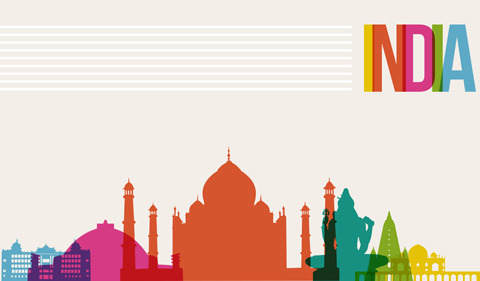This summer, join Women’s, Gender, & Sexuality Studies and Classics & World Religions for an amazing program experience at Gawande College in Unmarkhed, Maharashtra, India.
The “India: Gender, Culture, and Development” program is July 1 through Aug. 1, 2015.
The deadline for applications is Feb. 16.
Students will have the chance to explore gender in the cultural, religious, and social context of contemporary rural India. This context provides students with an opportunity to think about both the empirical and policy dimensions of conventional development work as well as to confront difficult normative questions about the trajectory and meaning of “development” itself.
Exposure to everyday life in Indian villages and visits to unique sites like the Buddhist cave monasteries at Ajanta are a major part of the coursework. In collaboration with Gawande College, Ohio University students will have the opportunity to meet with local college students, and through the service learning portion of the program, OHIO students will assist their Indian counterparts with English language learning.
Gawande College is named after a local Athens family whose support of the institution goes back for decades. The college also has a strong connection and affinity with Ohio University. Some similarities between the two institutions include their relative remoteness to urban centers as well as a commitment to providing educational opportunities to local and first-generation college students.
The rural dimensions of the Athens/Umarkhed experience will provide students with an opportunity to reflect comparatively on the politics of development within nation states as well as in the broader global context.
Program Focus
Students will learn about the interconnectedness of Indian religion, society and history through lectures, readings, and group excursions to some of the most significant religious sites venerated by Hindus, Muslims, Buddhists, and Sikhs. Engaging this kind of religious diversity in context prompts reflection on the range of meanings of secularism and toleration and the central role religion plays in the Indian experience. It also provides a useful lens on questions about the appropriate relationship between religiosity and public life.
The coursework in religion, culture, and history provides the critical backdrop for an analysis of the meanings, practices, and structures of gender. Much work in the field of development implicitly assumes a western trajectory for economic and social progress and gender emancipation. Students and faculty will critically engage this literature, asking, “What aspects of western progress translate?” but also, “What local resources (economic, cultural, religious) might offer alternative and more useful conceptualizations of progress and emancipation?”
Finally, work from these two courses comes together in a service learning experience in which students team up with Gawande College conversation partners. In the course of providing Indian students with opportunities to refine English speaking skills, OHIO students will engage in a process of in-depth ethnographic interviewing as a way of exploring the lived experiences of gender, religious identity, caste, and class.
Program Dates
July 1 – August 1, 2015
Activities
Activities include short visits to local mosques, temples, and stupas, along with day-long excursions to:
- Sri Renuka Devi Mandir in Mahur, a temple dedicated to the goddess Renuka
- Hazur Sahib in Nanded, one of the five sacred sites of Sikhism
- Sevagram Ashram in Wardha, the site of Gandhi’s last years
- Marasul village in the Yavatmal district
- Overnight trip to the Ajanta Caves, a UNESCO world heritage site near Aurangabad
Eligibility
The program is open to undergraduate students of all majors who have an interest in the cultural context and development politics of India. A minimum cumulative GPA of 3.0 is required.
Students also must be in good judicial standing. For more information regarding judicial records, read the entire judicial policy.
Accommodations
Students will live in shared double rooms in the wifi equipped guesthouse at Gawande College. All meals will be prepared on site by a cook hired for the guesthouse. Filtered water will be provided daily and security around the clock.
Courses and Credits
Instruction will take place in the main rooms of the guesthouse with exception to the final cultural program, which will be at the large lecture hall on campus. Students who successfully complete this program will earn 9 credit hours from the courses below:
- WGSS 4900: Gender and Development in Cultural Context (3 credits)
- WGSS 4900: The Experience of Gender in Cross Cultural Perspective (3 credits)
- CLWR 4900: Religious Traditions of India (3 credits)
Before departure, students are required to complete the reading for Part I of the WGSS 4900 syllabus, and students will meet for a two-hour seminar to discuss these readings. At the beginning of April, there will be a three-hour orientation to health and safety in rural Maharashtra.
For more information, contact one of the faculty leaders:
- Dr. Brian Collins: collinb1@ohio.edu
- Dr. Aaron Glaim: glaim@ohio.edu
- Dr. Julie White: whitej@ohio.edu



















Comments